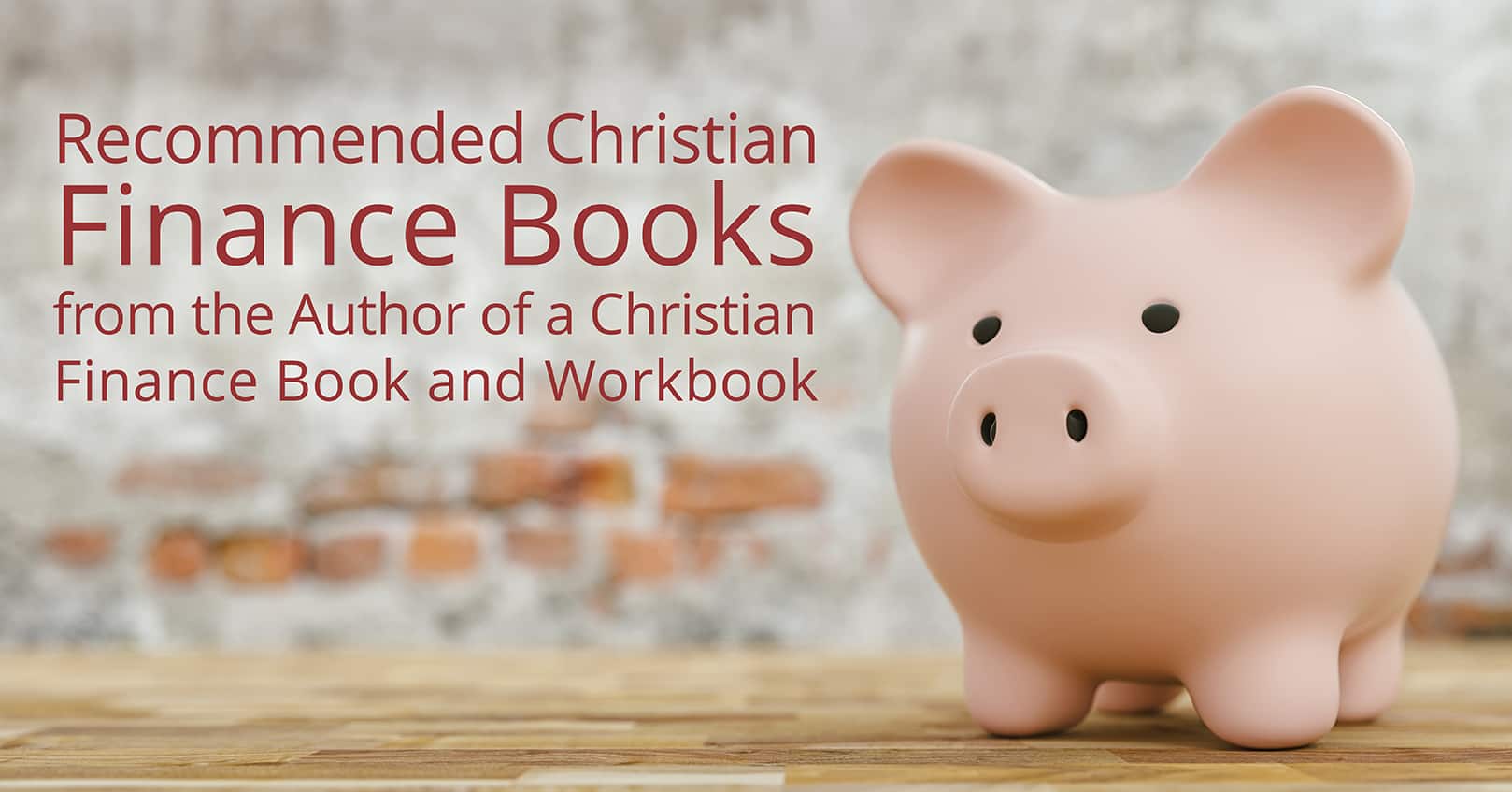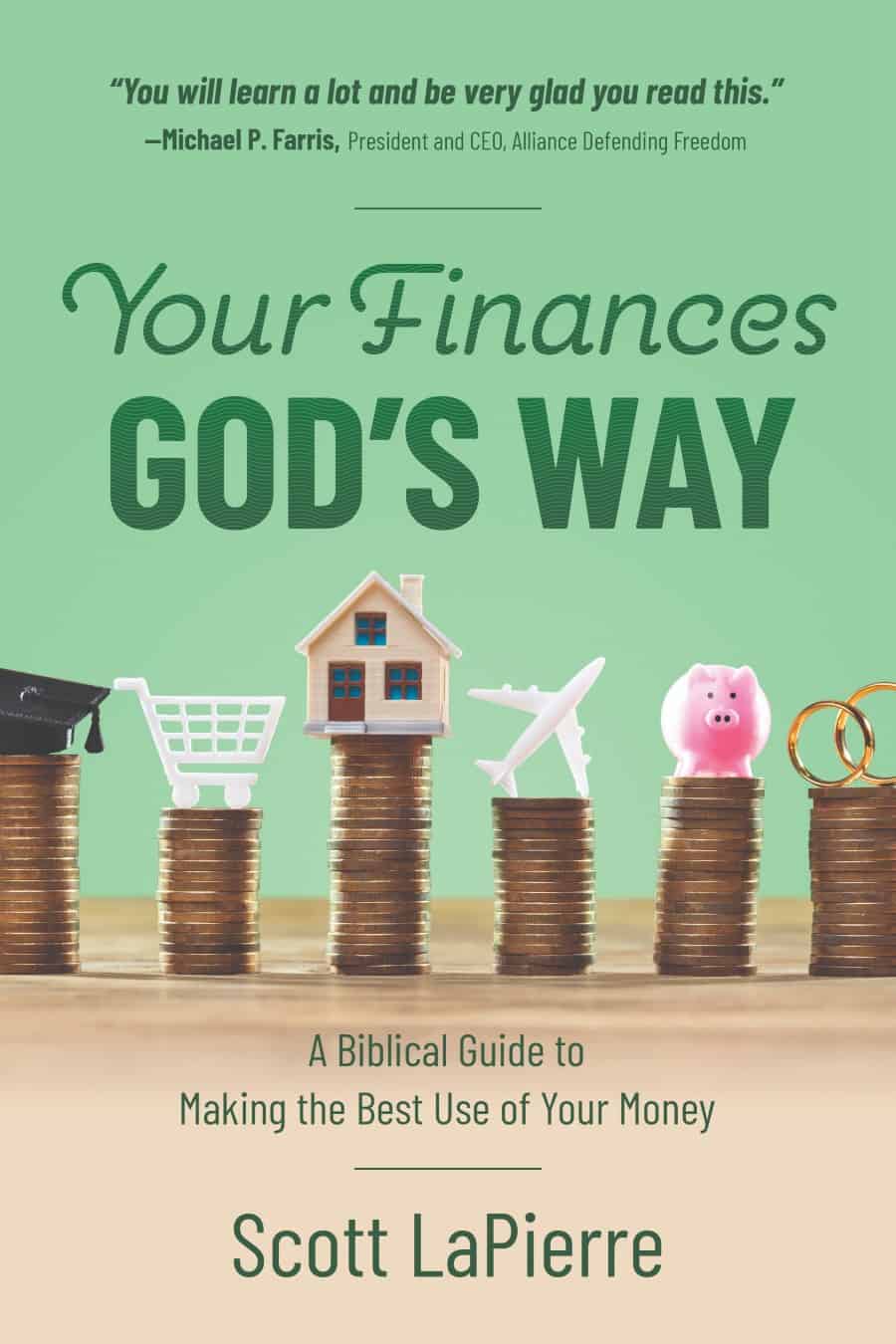
On May 3, 2022, Harvest House published my book Your Finances God’s Way and the accompanying workbook.
I had to be familiar with the other finance books on the market, including discussing how my book stood out. If my book had the same material as those books that had already been published, then why bother publishing my book?
Your Finances God’s Way takes a unique approach not seen in previous books. It is a continuation of my ministry in that it does what I do professionally: equip the saints for the work of the ministry. The book is unique in that it’s more biblical and appeals to those wondering, “What does God’s Word say I should do with my finances?”
Additionally, the book does more than tell people, “Do this, but don’t do this.” People make the decisions they do because of what is taking place in their lives; therefore, Your Finances God’s Way deals with topics, such as stewardship, covetousness, contentment, greed, modesty, and spiritual riches, that indirectly affect their financial decisions.
“Who is Scott LaPierre? Why should I read a financial book from him or recommended by him?”
Good questions!
My wife, Katie, and I have nine children, and we have always been a single-income family. I was a schoolteacher when we married, and a few years later I became a pastor. Both professions provide modest salaries, but by using the principles in Your Finances God’s Way, we were able to pay off all of our debt, including our mortgage.
Our financial situation reminds me of what Jesus did with the fish and loaves (Matthew 14:13–21), and what Elisha did with the widow’s oil (2 Kings 4:1–7). In both accounts, there was not much available—a few fish, loaves, and vessels—but God stretched it dramatically. He can do the same with our finances if we seek to honor Him with them. The opposite is also true: if we do not honor the Lord with our finances, He can make sure even a considerable amount does not stretch far.
I hesitate to share my financial testimony, so you don’t think more of me than you ought (Romans 12:3), but I choose to for three reasons:
- I hope this gives me personal credibility. I don’t want readers wondering if I applied my own advice and “walked the talk.” When I discuss debt, I want readers to know we do not have any. When I talk about paying off a mortgage, I want readers to know that is what we have done.
- I hope this gives my writing credibility. I want readers to know the principles in Your Finances God’s Way worked for us without a large salary. I do not want people thinking, “That is easy for you to say, Scott. You have probably made lots of money!” Nope.
- I hope this gives readers encouragement. God expects us to encourage others when we’ve been encouraged: “Blessed be the God and Father of our Lord Jesus Christ, the Father of mercies and God of all comfort, who comforts us in all our tribulation, that we may be able to comfort those who are in any trouble, with the comfort with which we ourselves are comforted by God” (2 Corinthians 1:3–4). For many people, their biggest “tribulation” and “trouble” is financial. What better way to comfort them than saying, “Here’s what I did that you can do too!”
Here are three other finance books I would recommend.
First, I recommend The Total Money Makeover: A Proven Plan for Financial Fitness by Dave Ramsey.
This is the top-selling financial book of all time. I have read it and recommended it to others. The book has mass appeal because it’s not strictly Christian. Get-rich-quick schemes are avoided in place of a simple and straightforward approach. The program, Financial Peace University, has been used in churches and secular organizations. The major focus is the elimination of debt. The accompanying radio show, podcasts, and supplemental material also have this focus.
The Total Money Makeover has appealed to unbelievers because it lacks biblical support and is not boldly Christian. But some people are turned off by Mr. Ramsey’s wealth and want a more conservative flavor. While many of the principles in the book (such as avoiding debt and saving money) are in Scripture, the verses are not presented; therefore, the credibility of the book is built on Mr. Ramsey’s credibility, versus the credibility of God’s Word. The author’s opinion versus God’s.
The Total Money Makeover is a valuable tool in the financial field. My book is different from it because Your Finances God’s Way discusses topics other than debt—such as giving, saving, greed, and contentment—and uses biblical support.
Second, I recommend How to Manage Your Money: An In-Depth Bible Study on Personal Finances by Larry Burkett.
Larry Burkett founded Crown Financial Ministries, had an accompanying radio show, and wrote many wonderful financial books. His program has been used by many individuals and churches, and is the closest rival to Dave Ramsey’s program.
How to Manage Your Money resembles Your Finances God’s Way in that it deals with people’s attitudes toward money and is biblically based. The book itself, as the title touts, is as much (or more) of a Bible study than it is a how-to-book. Your Finances God’s Way sets itself apart from Mr. Burkett’s book in that it reads as a Christian nonfiction book. Although I plan to create an accompanying Bible study, the book itself is not designed strictly as a Bible study. My desire is for readers to enjoy the biblical accounts that are unpacked. So if you’re looking for a book that is more of a Bible study, How to Manage Your Money is a great option.
Third, I recommend Money, Possessions, and Eternity by Randy Alcorn.
Mr. Alcorn’s book provides an eternal view of our temporary wealth and possessions. The primary focus, spread over the course of the book, can be boiled down to one point: the heavenly perspective we should have will help us be good earthly stewards.
In Mr. Alcorn’s own words, the book is “thoroughly researched . . . a biblical comprehensive view”—and it should be at over 500 pages! He strives to cover every conceivable topic related to money, such as investing, retirement, gambling, inheritances, giving, and the list goes on.
Is there such a thing as too much of a good thing? As one review who provided a one-star review said, “In the interests of full disclosure, I have only read halfway through this book.” On the other hand, other reviews appreciated the amount of material covered in Money, Possessions, and Eternity.
I do recognize that many people don’t want to read a financial book that’s over 300 pages, to say nothing about over 500 pages. While I cover many of the same topics as Mr. Alcorn, I’ve worked to accomplish that in considerably less space, making an alternative for similar content.
There you have it! Three finance books recommended by the author of a Christian finance book and workbook.
If you read any of these books, especially if you read mine, I would love to hear from you. Please let me know your honest thoughts. You can reach out to me through my website.
God bless,
Scott


















Comments